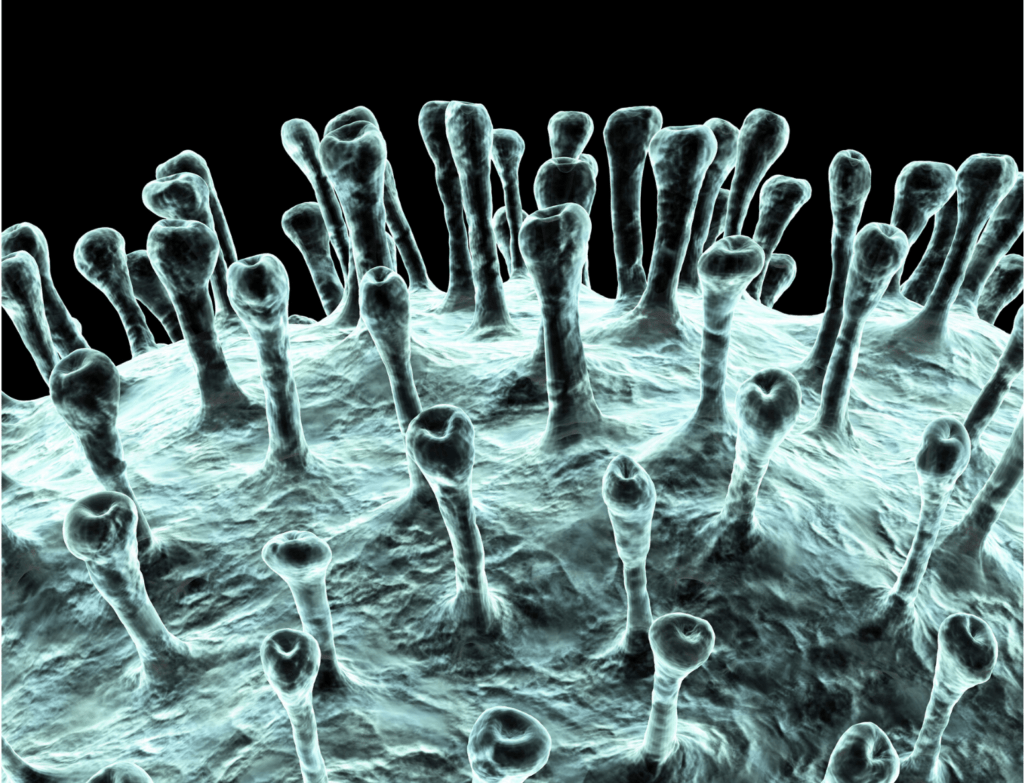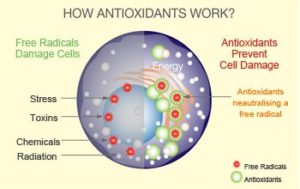
Recently Diagnosed or Relapsed? Stop Looking For a Miracle Cure, and Use Evidence-Based Therapies To Enhance Your Treatment and Prolong Your Remission
Multiple Myeloma an incurable disease, but I have spent the last 25 years in remission using a blend of conventional oncology and evidence-based nutrition, supplementation, and lifestyle therapies from peer-reviewed studies that your oncologist probably hasn't told you about.
Click the orange button to the right to learn more about what you can start doing today.
- You are here:
- Home »
- Blog »
- non-conventional therapies »
- COVID-19, Myeloma? Int. Vitamin C
COVID-19, Myeloma? Int. Vitamin C

“Seriously sick coronavirus patients in New York state’s largest hospital system are being given massive doses of (intravenous vitamin C-IVC)…“The patients who received (intravenous vitamin C) did significantly better than those who did not get vitamin C,” he said…
This blog post is not intended to promote “massive doses” of intravenous vitamin C as a coronavirus therapy. I am, however, making several points based on the articles linked and excerpted below.
First of all, as the articles below make clear, non-toxic nutritional supplements such as vitamin c (ascorbic acid), vitamin D, omega-3 fatty acids, others, can enhance human immune function.
Secondly, nutritional supplements are not well-researched and therefore are open to misunderstanding.
Lastly an most interestingly as far as I’m concerned, as the top two articles below discuss, medical doctors in Manhattan are treating Coronavirus patients with large doses of intravenous vitamin C. Intravenous vitamin C is a non-conventional, controversial therapy. The New York Times article is cautioning the use of non-conventional therapies while on the same day, in the same city, the New York Post is reporting that M.D.s are treating coronavirus patients successfully with high-doses of intravenous vitamin C therapy.
Much of the reason I am so keen to research and write about IVC is because this therapy has been established as being cytotoxic to my incurable blood cancer called multiple myeloma. It seems only logical to me that a therapy that appears to be effective at treating COVID-19 as well as multiple myeloma would capture the attention of the FDA.
To Learn More about intravenous vitamin C therapy and Myeloma- click now
If you have any questions or comments about IVC please scroll down the page, post a question or comment and I will reply to you ASAP.
Thank you,
David Emerson
- MM Survivor
- MM Coach
- Director PeopleBeatingCancer
Recommended Reading:
- Multiple Myeloma Chemotherapy – Antioxidants Enhance Action
- Surviving Coronavirus w/ Multiple Myeloma
- Multiple Myeloma Therapy- My Top 5 Evidence-based, Non-Toxic, Alternatives…
New York hospitals treating coronavirus patients with vitamin C
“Seriously sick coronavirus patients in New York state’s largest hospital system are being given massive doses of (intravenous vitamin C) — based on promising reports that it’s helped people in hard-hit China, The Post has learned…
Dr. Andrew G. Weber, a pulmonologist and critical-care specialist affiliated with two Northwell Health facilities on Long Island, said his intensive-care patients with the coronavirus immediately receive 1,500 milligrams of intravenous vitamin C…
“The patients who received (intravenous vitamin C) did significantly better than those who did not get vitamin C,” he said…
Each dose is more than 16 times the National Institutes of Health’s daily recommended dietary allowance of vitamin C, which is just 90 milligrams for adult men and 75 milligrams for adult women..”
NEW YORK HOSPITALS ARE USING VITAMIN C TO TREAT SOME CORONAVIRUS PATIENTS
“Large doses of vitamin C are being administered to patients in intensive care at certain hospitals in New York, Newsweek has confirmed with a spokesperson for Northwell Health.
They confirmed reports that patients testing positive with COVID-19 were in some cases being treated with large doses of vitamin C—among other drugs—at their clinics.
The antioxidant is being administered intravenously in quantities far exceeding the daily recommended dose, which is 90 milligrams for men and 75 milligrams for women as recommended by the National Institutes of Health…
“I have to hope that this, or any new idea, may help,” McCaffery said. “Just to reiterate though, taking large doses of vitamin C tablets would be very unlikely to protect you from COVID-19—unless you were actually vitamin C deficient, which with a normal diet is quite rare…”
Supplements for Coronavirus Probably Won’t Help, and May Harm
“In the past few weeks, Ashley Koff, a registered dietitian in Columbus, Ohio, has gotten a deluge of requests from people who want to know which dietary supplements they should take to protect themselves from the coronavirus…
Dietary supplement sales have surged nationwide as panicked consumers stock up on vitamins, herbs, extracts, and cold and flu remedies. None of these products have been shown to lower the likelihood of contracting the coronavirus or shortening its course, and taking large doses of them can potentially do harm. But experts say that the jump in sales suggests many people are desperate to strengthen their body’s immune defenses and ease their heightened anxiety levels.
“The numbers we are seeing are unprecedented,” said Joan Driggs, an analyst at IRI, a market research firm that tracks supplement sales at Walmart, Walgreens, Safeway, CVS and other drugstores and retailers. “People are trying to protect themselves, and they feel that they have to take advantage of whatever resources are at hand.”
While sales of dietary supplements rose 6 percent over all during the first week of March compared to the same time period last year, according to IRI, sales of cold and flu remedies surged. Sales of vitamin C, a purported immune booster, soared 146 percent, while sales of zinc, a popular remedy for colds and respiratory illness, shot up 255 percent. Sales of elderberry supplements, which are marketed for immune support, are up 415 percent. Echinacea, an herb used for cold and flu relief, jumped 122 percent.
The frenzied buying has led some companies and wellness enthusiasts to prey on public fears. Countless natural remedies for coronavirus have circulated on social media, including herbs, saltwater, creams, toothpastes and “miracle mineral solution,” a mixture of sodium chlorite that the Food and Drug Administration has warned is tantamount to drinking bleach.
In response, the F.D.A. and Federal Trade Commission sent warning letters to at least seven companies warning them to stop advertising fraudulent cures and treatments for coronavirus, including essential oils, elderberry teas and colloidal silver supplements. The agencies cautioned that colloidal silver in particular is “not safe or effective” for any disease or condition…
“I think the fact that we’re seeing this spike in sales tells us that consumers absolutely value their ability to use supplements,” said Steve Mister, the president and chief executive of the Council for Responsible Nutrition, an industry group.
The fastest selling supplements are those that have long been the subject of research on cold and flu relief, including zinc, vitamin D and elderberry extract. Zinc is thought to inhibit replication of the virus that causes the common cold. Some randomized trials have found that taking high doses of it may help to lower the risk of contracting a cold and potentially shorten its duration by 20 percent…
Supplementing with moderate doses of vitamin D has been shown in some trials to help lower the risk of contracting the cold and flu, but the effect is mainly seen in people who have very low or deficient levels. And a handful of small, industry-funded trials have found that elderberry extract can shorten the duration and severity of the cold and flu…
These viruses are quite different from one another. The coronavirus, for example, has a more severe impact on the lower respiratory tract and a longer incubation period compared to the viruses that cause colds and influenza…
Taking large doses of single vitamins and minerals also carries risks…
Whole foods like fruits, vegetables, fish, poultry, nuts, legumes and milk contain a wide range of vitamins, minerals and phytochemicals — including zinc and vitamin D — that work in synergy to protect your health…”
Vitamin C as Cancer Therapy
“Although the use of intravenous vitamin C (IVC) by those with a diagnosis of cancer is considered, by traditional medicine, an ineffective and possibly dangerous therapy, there is accumulating medical research that intravenous vitamin C may improve outcomes”
I take vitamin C daily. I do this to keep my immune system humming along. Even though I believe that vitamin C boosts my immune system, I’ve always wondered about vitamin C killing cancer. Nobel Laureate Linus Pauling touted the cancer killing effects of vitamin C yet he was considered a quack by some.
Is vitamin C cancer therapy? Linus Pauling said that vitamin C can kill cancer but what do the studies say?
The study below says that vitamin C in pill form can kill cancer. Vitamin C intravenously (IVC) kills more cancers faster. But as always, the devil is in the details. As the article linked and excerpted below explains, the cancer killing ability of vitamin C, oral or intravenous, hinges on the genetic makeup of your cancer.
If you have been diagnosed with cancer you may want to read the article below. If you have colon or pancreatic cancer you definitely want to read the article below carefully.
Note to colon cancer survivors. Even if your surgeon tells you proudly that “we got it all,” please understand that cancer cells may still be running around inside you. There are a host of antioxidant supplements such as vitamin C that you may want to learn about in an effort to kill those CSC (cancer stem cells) running around your body just waiting to cause more problems.
Recommended Reading:
Curcumin as Cancer Therapy-Cytotoxic, Integrative and Selective
Curcumin as Evidence-based Non-Conventional Cancer Therapy
Study shows benefits of vitamin C in treating cancer
“Although the use of intravenous vitamin C by those with a diagnosis of cancer is considered, by traditional medicine, an ineffective and possibly dangerous therapy, there is accumulating medical research that intravenous vitamin C may improve outcomes. A recent medical study evaluating the effect of adding intravenous vitamin C during chemotherapy for pancreatic cancer demonstrated significant benefits…
A recent phase I human trial (2018) published in the medical journal Cancer Research evaluated the effect of intravenous vitamin C and usual traditional therapy on advanced pancreatic adenocarcinoma. The study demonstrated that intravenous vitamin C in combination with the usual chemotherapy (gemcitabine) and radiation therapy almost doubled survival time (21.7 months compared to 12.7 months) and the time of no progression of disease increased threefold compared to their control (13.7 months vs 4.6 months).
In addition, the intravenous vitamin C protected normal cells from the toxic effects of radiation therapy. Their conclusions were that intravenous vitamin C aids in the killing of pancreatic cancer cells and protects normal cells from radiation therapy damage ” … making it an optimal agent …” in the treatment of pancreatic cancer…”
Vitamin C kills tumor cells with hard-to-treat mutation
“Now, a study published online today in Science reports that vitamin C can kill tumor cells that carry a common cancer-causing mutation and—in mice—can curb the growth of tumors with the mutation…
Studies by Levine’s group later suggested that the vitamin must be given intravenously to reach doses high enough to kill cancer cells. A few small trials in the past 5 years—for pancreatic and ovarian cancer—hinted that IV vitamin C treatment combined with chemotherapy can extend cancer survival…
Cantley’s lab and collaborators found that large doses of vitamin C did indeed kill cultured colon cancer cells with BRAF or KRAS mutations by raising free radical levels, which in turn inactivate an enzyme needed to metabolize glucose, depriving the cells of energy. Then they gave daily high dose injections—equivalent to a person eating 300 oranges—to mice engineered to develop KRAS-driven colon tumors. The mice developed fewer and smaller colon tumors compared with control mice…
Cancer geneticist Bert Vogelstein of Johns Hopkins University, in whose lab Yun noticed the GLUT1 connection, is excited about vitamin C therapy, not only as a possible treatment for KRAS-mutated colon tumors, which make up about 40% of all colon cancers, but also for pancreatic cancer, a typically lethal cancer driven by KRAS…”



